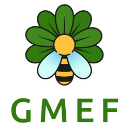Background
Philips Park is an important wildlife-rich Local Nature Reserve located on one of the most important wildlife corridors of Greater Manchester. It is comprised of a great variety of habitats, including both young and ancient woodlands, hedgerows, grasslands and wetlands, such as ponds and streams. These habitats support typical wildlife species, such as foxes, roe deer, willow tits, nuthatches, woodpeckers, holy blue butterfly, wood anemones, wild garlic and bluebells. The site is on the doorstep of the City and its good transport links and immediate access to the M60 means that people throughout Greater Manchester could be engaged with and benefit from visiting the site. Awareness of Philips Park is however poor and the condition of its habitats and access routes has significantly deteriorated over the past 15 years due to reduced conservation management work.
The Need
The Park’s neglect has seen an alarming increase in the spread of Invasive Non Native Species (INNS) such as Himalayan Balsam, Rhododendron and Japanese Knotweed which detrimentally impact on native species. The poor condition of footpaths and reduced accessibility to the park inhibits visitor numbers and unfortunately encourages anti-social behaviours. Ultimately, with the lack of active management on this strategic site, the Park is at risk of losing its character and value for the wider landscape and, therefore, creating a bigger disconnection of the local community with Philips Park.
Our Solution
During 2021, we worked in collaboration with local communities and Bury Council to pilot the recovery of nature at Philips Park through recruiting and supporting over 120 volunteers to deliver practical action at the site. This highlighted the impacts that can be achieved by mobilising the community to act for nature. It is critical that our pilot work at Philips Park is extended and strengthened as without this the quality of habitats will continue to deteriorate, invasive species will spread through the site and it is unlikely that we will secure buy-in and collaboration from partners and attract external investment for much needed capital works.
Our pilot project has evidenced the opportunity to support, facilitate and empower the local community to deliver practical interventions to recover nature at the site. Building on this pilot project we now aim to develop and deliver a three year strategy and action plan with our partners around which we will grow more active and long term leadership by the local community to secure nature recovery at Philips Park and benefit people and communities across Greater Manchester.
Our Proposed Impact
Our project will cost approximately £182,000 to support one project officer post and 3 traineeships and pay for equipment and volunteer costs over three years to deliver the following outcomes:
-
Enhancement of key woodland (136 ha), grassland (3 ha) and wetland habitats (at least 5 wildlife ponds) and immediate adjacent landscape through activities such as invasive species control, wildflower planting, woodland thinning, hedgelaying and many more with a target of 500 volunteers recruited to undertake 220 days of practical action;
-
3,000 new species records and increased awareness from the local communities of the changes implemented in the site and its importance in the landscape;
-
2,500 people engaged in events (mainly families) though delivery of exciting, high quality and Covid secure events;
-
1,000 households around Philips Park engaged in a Wildlife gardening to take meaningful action for nature at home;
-
People will have developed skills and have greater wellbeing.

